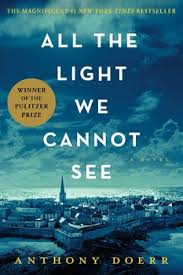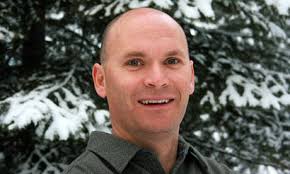All the Light We Cannot See by Anthony Doerr, USA, 2014
This is a beautifully written and extremely thought-provoking book where poetry stands against the tragic background of war. Set in the 1930s and 1940s in France and Germany, the novel follows two characters: a blind Frenchgirl, Marie-Laure, whose father, Daniel, works at the Paris museum as a locksmith, and Werner, a German orphan who, because of his amazing technical ability, wins a place at the National Political Institute of Education at Schulpforta. Although Werner is hoping to be able to develop his technical skills and involve himself in maths and science, the Institute is in reality a place where youth are educated to be faithful to the Nazi cause.
Paris is occupied and Marie-Laure and her father flee to Saint-Malo where they find a temporary safe haven with Marie-Laure’s great-uncle. Her father is eventually captured, Marie-Laure becomes involved in the resistance, and finally, during the Allied bombing of Saint-Malo, she and Werner meet.
Fairy stories, legends and Jules Verne’s wonderful Twenty Thousand Leagues Under the Sea are woven around the atrocities and the waste of war, while the wonder of technical discovery and life itself are pivotal to the novel. In short, it is a story about the doing the right thing when it is difficult to know just what is right and what is wrong.
Photo of Anthony Doerr from www.theguardian.com
Although comprising more than 500 pages, it is a book that is difficult to put down; each short chapter spurring the reader to find out what happens next. My only comment on the negative side would be that there are some words and expressions, which though completely acceptable in modern-day America, tend to stand out uncomfortably when spoken by a European from the 1940s. Beautiful, sad, thrilling, moving and definitely thought-provoking, it can be possibly summed up in the words of Werner’s sister, Jutta: ‘Is it right to do something only because everyone else is doing it?’

